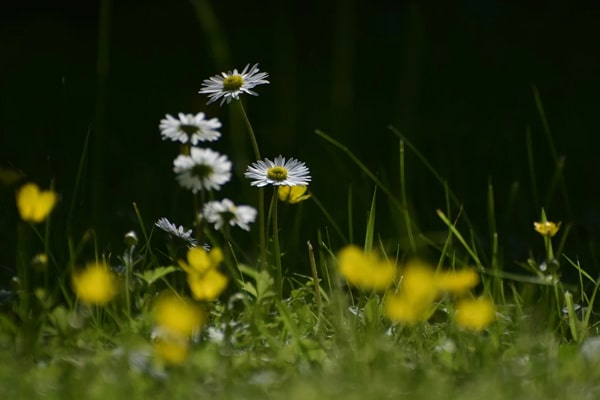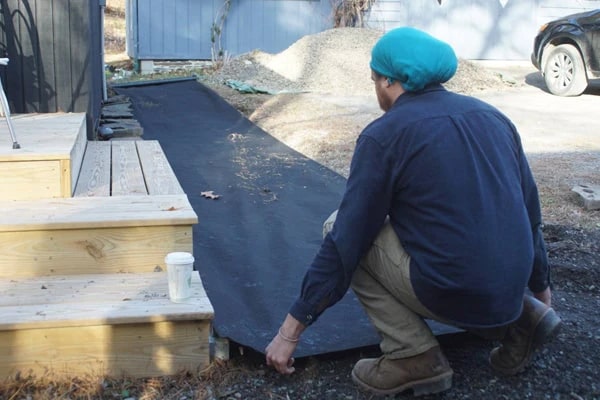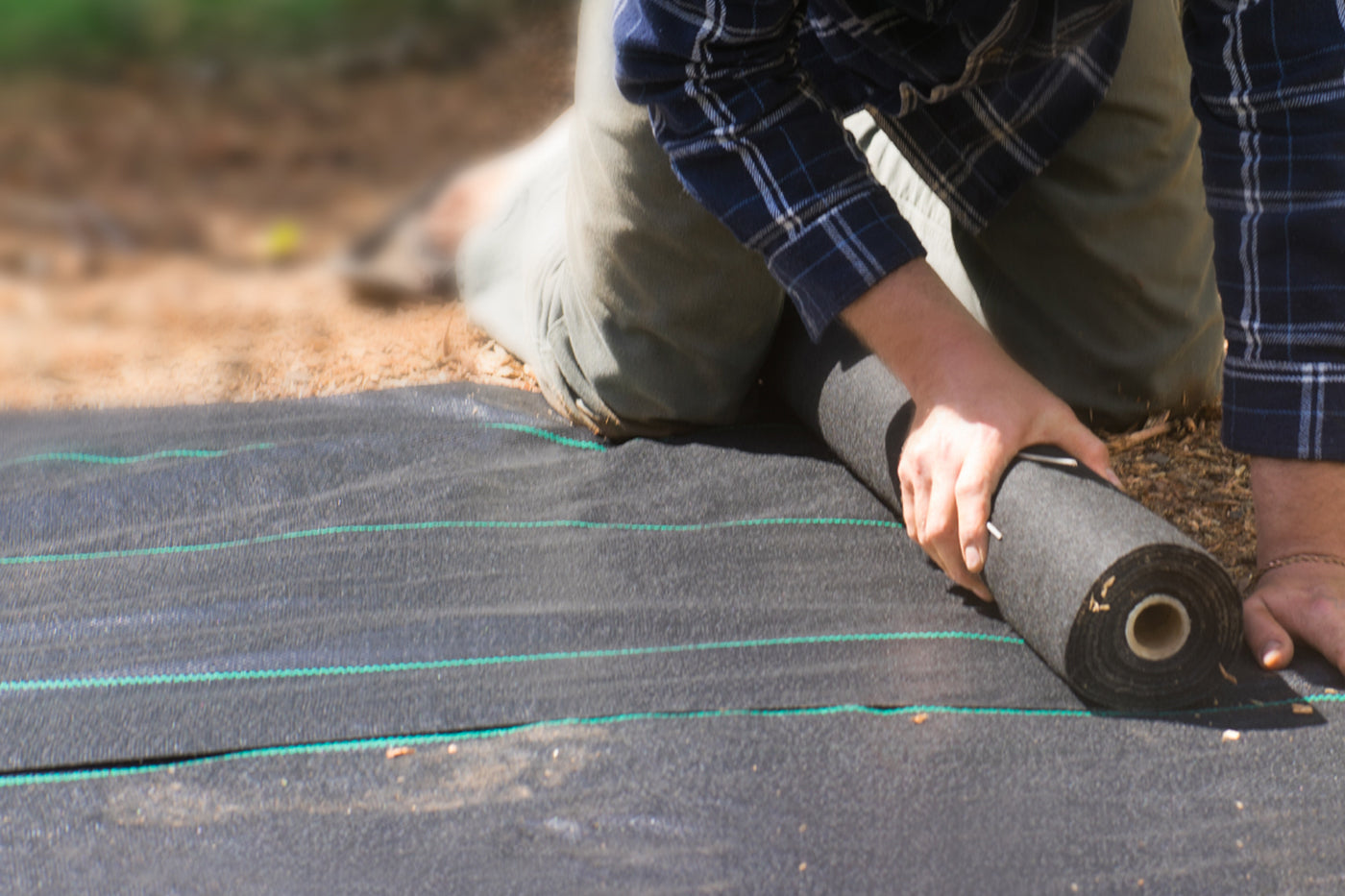Most growers and gardeners use herbicides to control weeds. But chemicals from herbicides can cause pollution and harm beneficial insects and pollinators.
If you want to go the all-natural route, there are homemade solutions to a weed-free garden. In this guide, we’re sharing weed control tips, including chemical-free weed killer recipes you can whip up at home.
Contents []
Why Use All Homemade Weed Killers?

Before we share some homemade solutions to control weeds, why is it better to go all-natural anyway? Below are the benefits of using chemical-free weed killers:
It’s non-toxic: Homemade weed killers made from all-natural ingredients. They are safe to use around children, pets, and other plants because they don’t contain harmful chemicals like commercial weed killers do. This means maintaining a healthy garden without worrying about exposing your loved ones to toxic substances.
It’s affordable: DIY weed-killer recipes use ingredients that are readily available at home or are inexpensive to purchase, like vinegar or lime juice. This can save you money compared to buying commercial weed killers regularly.
It’s sustainable and eco-friendly: Natural ingredients break down without leaving harmful residues that can contaminate soil or water sources. Opting for natural alternatives contributes to a healthier ecosystem and reduces your environmental footprint.
Using biodegradable and renewable ingredients is a sustainable approach to gardening. This aligns with the principles of organic gardening, which prioritize working in harmony with nature.
Control over the formula: Homemade weed killers are versatile and easy to make. Most recipes require a simple mixing of ingredients, which can be applied directly to the weeds using a spray bottle or other applicator.
You can also easily customize the ingredients based on the types of weeds you’re targeting or the specific needs of your garden. Whether it’s vinegar, salt, citrus oil, or a combination of these ingredients, you have the flexibility to create a solution that works best for you.
9 Easy Weed Killer Recipes You Can Do at Home
These additional homemade weed-killing recipes offer more options for effectively controlling weeds in your garden using natural ingredients.
Experiment with these recipes to find the one that works best for your specific weed control needs. Remember to apply them carefully and avoid contact with desirable plants to maintain a healthy garden ecosystem.
Vinegar and dish soap solution
Combine 1 liter white vinegar with 3 large tablespoons of salt. Add about 3 teaspoons of dish soap (avoid using antibacterial variants). Mix the solution well and pour it into a spray bottle.
Give a good shake before spraying directly on weed leaves. For large weeds, pour the solution on the plant.
Vinegar and Dish Soap Spray
This is a good alternative if you don’t want to use salt as a weed-killer solution.
Mix 1 gallon of white vinegar with 3 tablespoons of liquid dish soap and stir well.
Transfer the mixture to a spray bottle and apply it directly to the weeds on a sunny day.
The vinegar kills the weeds by drying them out, while the dish soap helps the solution stick to the leaves for better effectiveness.
Citrus Oil Spray
Mix 1 tablespoon of citrus oil (such as orange or lemon oil) with 1 quart of water.
Add a few drops of liquid dish soap and mix well.
Transfer the mixture to a spray bottle and apply it to the weeds.
The citric acid in the citrus oil helps to break down the waxy coating on weed leaves, leading to their demise.
Cornmeal
Sprinkle cornmeal around the base of weeds or in areas where weeds are prone to grow.
Reapply the cornmeal as needed, especially after heavy rain or watering.
Cornmeal is a natural pre-emergent weed killer, inhibiting weed seeds from germinating. This method is effective in controlling crabgrass.
Baking Soda Solution
Mix 1 cup of baking soda with 1 gallon of water until the baking soda is dissolved.
Transfer the solution to a spray bottle and apply it directly to the weeds.
Baking soda disrupts the pH balance in the soil, making it inhospitable for weed growth.
Vodka Solution
Mix equal parts vodka and water in a spray bottle.
Add a few drops of liquid dish soap and shake well.
Spray the solution directly onto the weeds, ensuring thorough coverage.
The alcohol content in vodka dehydrates the weeds, causing them to wilt and die.
* You can use rubbing alcohol as an alternative to vodka
Boiling Water
This is, perhaps, the easiest natural solution for getting rid of newly sprouted weeds. Boil a pot of water on the stove or use a kettle.
Carefully pour the boiling water directly onto the weeds, targeting the base of the plants.
This method kills weeds by scalding them and can be particularly effective for weeds growing in cracks or between pavement.
Just remember, this method only works for newly sprouted weeds. It might not be as effective for weeds with deep roots.
All-vinegar solution
Mix half a cup of distilled white vinegar with equal parts of apple cider vinegar in a liter of water. Mix the solution well, then pour it into a spray bottle.
Spray directly on weed leaves or pour at the base of the weeds. The high concentration of acids in vinegar will burn and kill the weeds.
Lemon juice and dish soap solution
The natural acidity of lemon juice helps kill weeds effectively.
Squeeze fresh lemon juice into a bowl or container. You can use either freshly squeezed lemon juice or bottled lemon juice.
Dilute the lemon juice with an equal amount of water. For example, if you have 1 cup of lemon juice, mix it with 1 cup of water.
Add 3 teaspoons of liquid dish soap to the lemon juice and water mixture. The dish soap helps the solution adhere to the weed leaves.
Stir the mixture well to combine all the ingredients thoroughly. Transfer the lemon juice weed killer solution into a spray bottle for easy application.
When using DIY weed killers, you must be extra patient because the solutions do not work as quickly as chemical herbicides. It will take several treatments before clearing the garden of weeds. This goes especially when dealing with vigorously growing, persistent weed species.
Other Natural Ways to Eliminate Weeds in the Garden

We suggest installing landscape fabric as a long-term yet low-maintenance method of removing weeds.
Landscape fabric is made from a sturdy material that you lay down on the soil before planting to create a barrier between the soil and the air.
Once installed, it blocks sunlight, preventing weed seeds from germinating and sprouting weeds from growing. Landscape fabric could eliminate weeds in small to large outdoor spaces, saving time and effort spent on weeding.
Also, weed barrier landscape fabric helps retain moisture in the soil and regulates temperature, creating a more favorable environment for your plants to thrive. It also reduces the need for chemical weed killers, promoting a healthier and more eco-friendly gardening practice.



